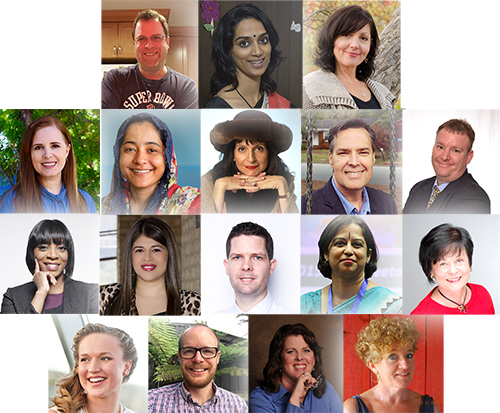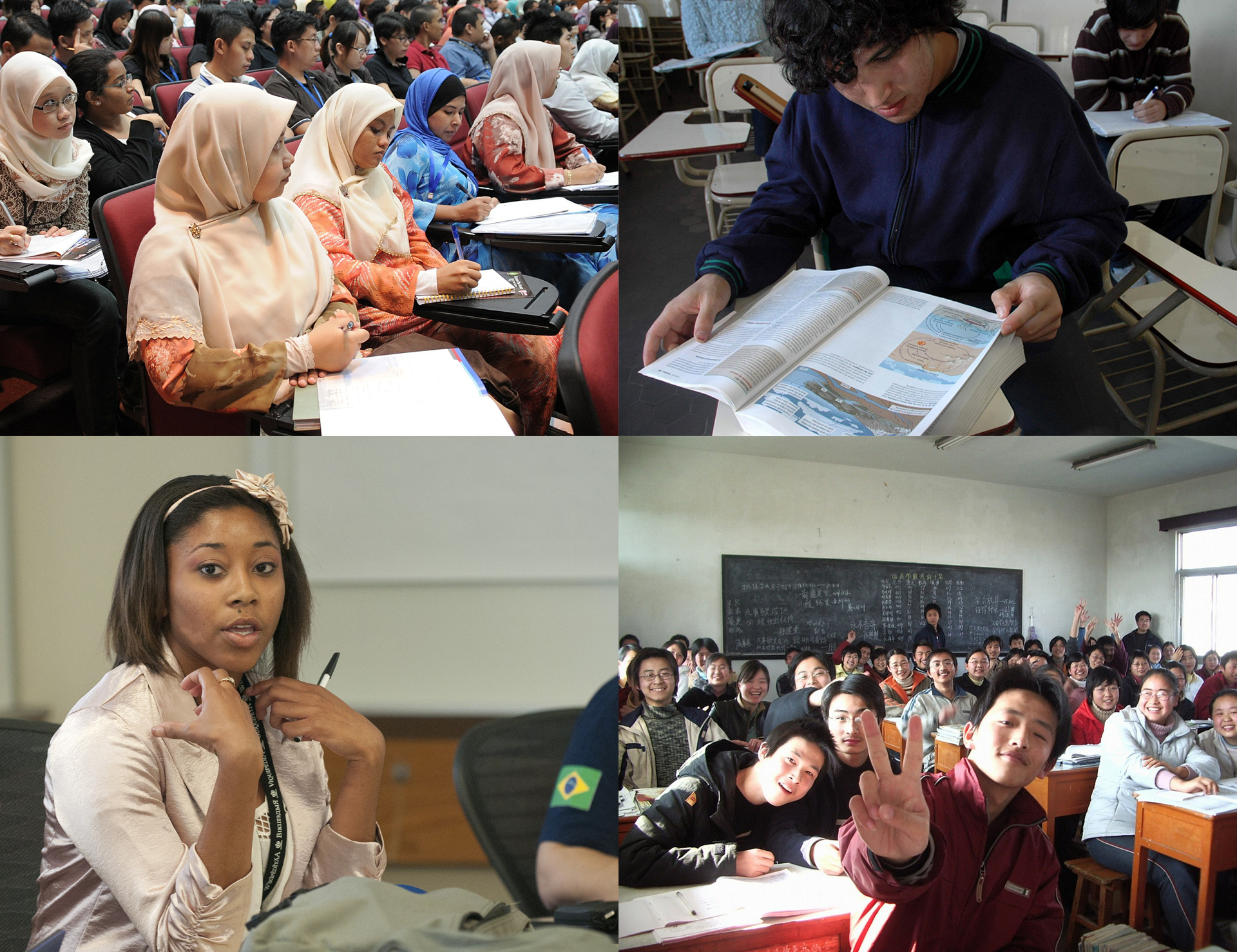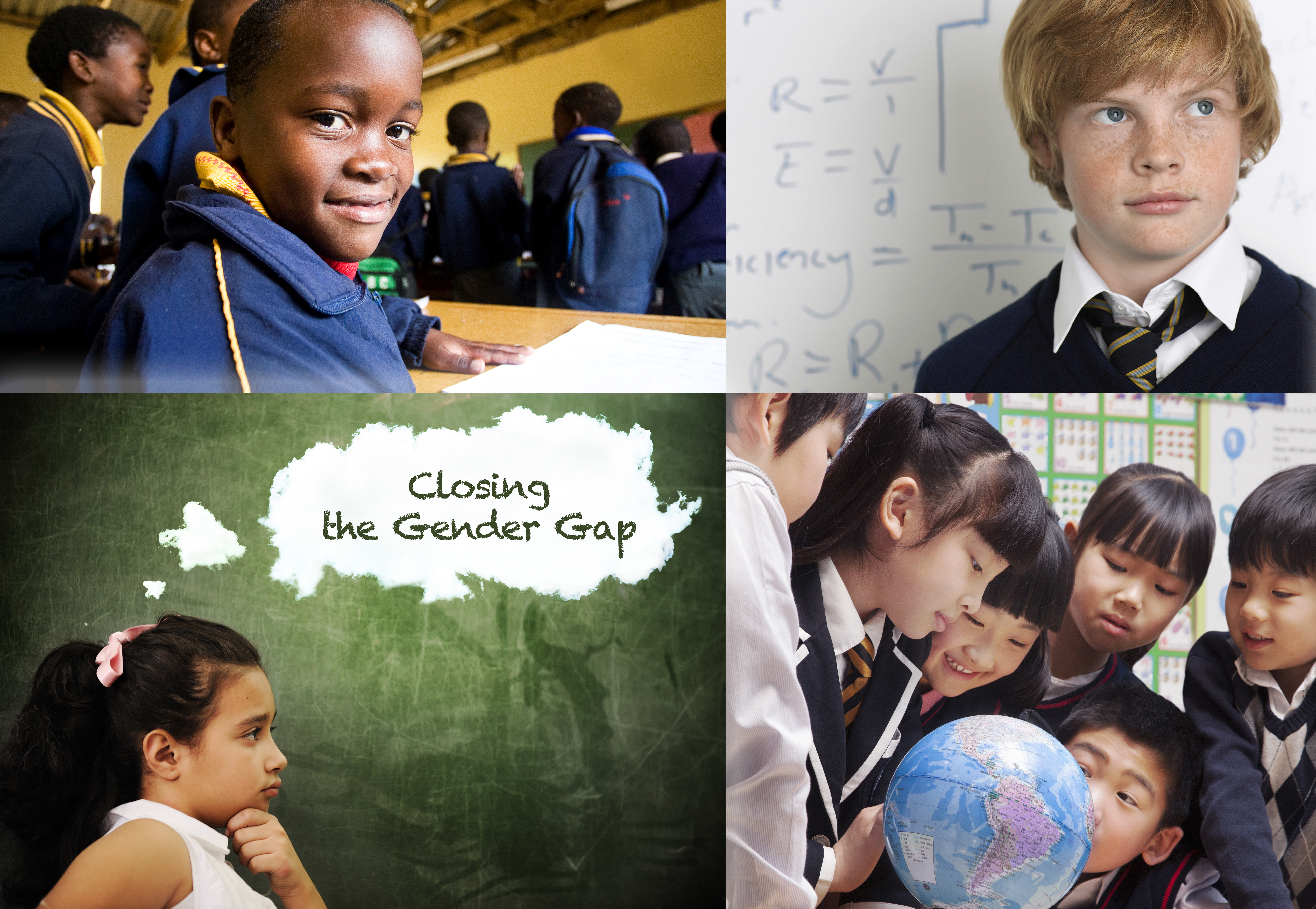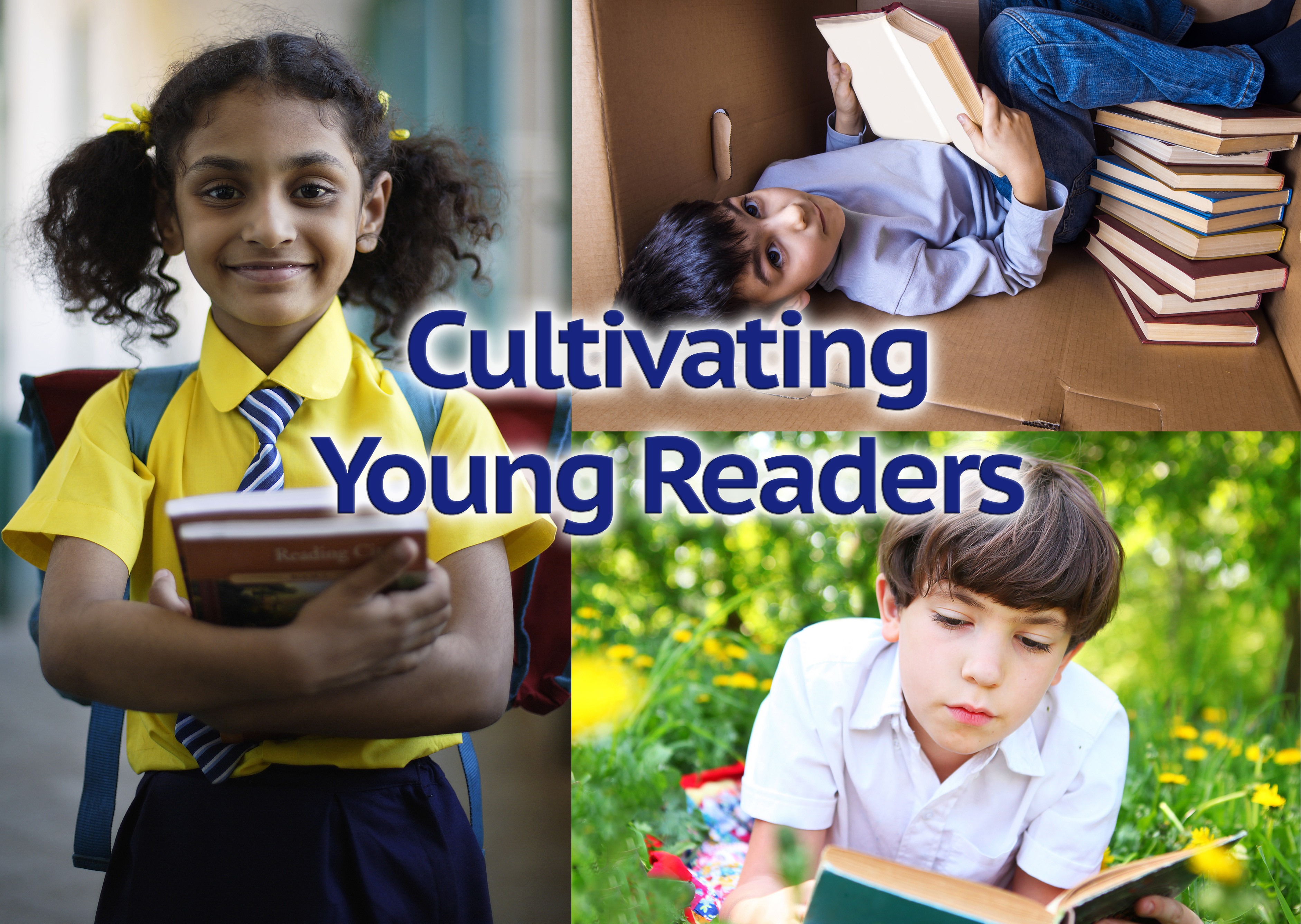
Die Rolle der Lehrer ist von größter Bedeutung für die Erhöhung des Bildungsstandards auf der ganzen Welt. In Ländern wie Finnland, Singapur und Südkorea, Lehrer werden aus den qualifiziertesten Absolventen rekrutiert, sind gut ausgebildet, respektiert und gut bezahlt. Dies ist jedoch nicht in jedem Land der Fall. Laut Mckinsey “Schließen der Talentlücke: Gewinnung und Bindung von Absolventen im oberen Drittel für Karrieren in der Lehre”, in the United States for example, nur 23 percent of new teachers come from the top third, and just 14 percent are in high poverty schools, where the difficulty of attracting and retaining talented teachers is particularly acute. If nations are serious about attracting the best talent to educate their children, they clearly need to improve the value proposition to potential candidates.
Unsere globale Lehrer Bloggers sind Pioniere und Innovatoren in Bereichen wie Technologie-Integration, Mathematik-Coaching, sonderpädagogischen Förderung, naturwissenschaftlichen Unterricht, und Geschlechtergerechtigkeit. Sie haben Schulen gegründet, geschrieben Curricula, und führte Klassenzimmer in 13 verschiedenen Ländern, die sich über jeden besiedelten Kontinent auf der Erde strecken. Diese Lehrer stärken und bereichern das Leben von jungen Menschen aus fast allen erdenklichen Hintergrund.
Heute in Die globale Suche nach Bildung, unsere Top Global Lehrer Bloggers teilen ihre Antworten auf dieses Monats Frage: Wie begeistern wir die besten und klügsten Lehrer zu werden?
The short answer to our question for Miriam Mason-Sesay (@EducAidSL) in Sierra Leone is to “junge Menschen in ein neues Paradigma engagieren. Wenn Erfolg in Bezug auf das Menschsein definiert; wenn der Erfolg im Hinblick auf die festgelegt ist, wie viele Menschen hatte ich einen positiven Einfluss auf die durch meine Wege des Seins und der Umgang mit ihnen; wenn der Erfolg im Hinblick auf die definiert ist habe ich die Welt zu einem besseren Ort, um die Art und Weise habe ich andere behandeln, und mein Leben leben, dann gibt es eine Aufregung über einen Teil des einzigen Beruf zu sein, wo wir wirklich die Lebenschancen von Hunderten von jungen Menschen verändern kann.” Weiterlesen.
Maarit Rossi (@pathstomath) offers crucial insight into the question, being from Finland–arguably the country with the best teachers in the world. She thinks it boils down to simple concepts like: “respect of the profession, flexibility of the curriculum, Lehrer’ high level of education and autonomy of teaching methods.” In Finnland, there are no school inspectors nor national tests. Teachers themselves are trusted to observe and evaluate their students. “I make my own tests or make them together with a colleague. We don’t give much homework.” Weiterlesen.
“Within the most challenging schools there are educators whose love for what they do can be infectious because they see value of impacting the lives of children,” says Nadia Lopez (@TheLopezEffect) whose school is in one of New York’s low income neighborhoods where recruiting and keeping skilled teachers is very difficult. Check out Nadia’s top tips to attract the best and brightest to a career in education: Weiterlesen.
Adam Steiner’s blog (@steineredtech) is inspired by the award-winning book, Professionelle Kapital (Autoren Andy Hargreaves @HargreavesBC and Michael Fullan @MichaelFullan1). Professional Capital recognized that teaching cannot be scripted and emphasized collective responsibility and shared success as key to school success. Steiner notes that the lessons of Professionelle Kapital identify “key factors in recruiting and retaining the best teachers”: Weiterlesen.
Pauline Hawkins (PaulineDHawkins) asserts “American teachers are scapegoats for everything wrong with our society.” So how does Pauline suggest we bring respect to the profession? The first step in her multiple step process is “getting rid of the ridiculous evaluation system based on standardized tests and tied to teacher pay. Master teachers know that their true effectiveness cannot be measured by a test.” Weiterlesen.
“It starts with us! The people in education right now!” , sagt Craig Kemp (mrkempnz) who believes that part of the problem is the media tends to show the hardships of being an educator. Craig, who credits his Mum for his passion to teach, says educators must promote and share what they do in positive ways. “One comment can influence someone to become a teacher.” Weiterlesen.
Rashmi Kathuria (@rashkath) from India notes, “Teaching is not just a job from 8:00 am to 3:00 pm. It is a time consuming job even after regular school hours.” When teachers go home they don’t usually get to relax; teachers prepare assignments, do corrections, and work at home preparing lesson plans. They also, “take up online self-professional development from home.” Rashmi recommends incentives for teachers who do extraordinary work such as “a subsidized internet connection to work from home and remain connected with students through their blogs/wikis/online classrooms.” Weiterlesen.
“There are no magic tricks” says Dana Narvaisa (@dana_narvaisa) from Latvia who shares experiences from her own journey. “If you’re a leader in your twenties or thirties, you’re looking for growth, you’re looking for mentors, for role models. To get the best and brightest to become educators, they need at least a few more like-minded people on their team for long term success.” Weiterlesen.
Money and common sense are key, notes Todd Finley (finleyt) quoting Stanford Professor Linda Darling-Hammond: “Nearly all of the vacancies currently filled with emergency teachers could be filled with talented, well-prepared teachers if 40,000 service scholarships of up to $25,000 each were offered annually” to offset teacher education costs based on merit. Curriculum that’s too focused on standardized test scores is “soul killing” and evaluation by VAM Scores should immediately stop. “To attract teachers, we need the public will to support service scholarships, increase pay, stop over-testing, and terminate verifiably wrong-headed evaluation practices.” Weiterlesen.
Richard Wells (@EduWells) takes a different approach to the question. “I believe it makes for a more positive debate when people discuss the potential growth of current teachers, than that of asking: ‘how do we attract better people?” So how does New Zealand build the best and the brightest teachers? Weiterlesen.
Katherine Franco Cardenas (@ProfKaterineFra) of Colombia writes for Die globale Suche nach Bildung in her native language of Spanish and believes that, “one way to inspire the best and brightest to become an educator lies in providing the opportunity for direct interaction with teachers making a difference in the context in which they operate.” It’s important for teachers to meet inspiring educators to serve as a role model for how an educator can make a positive effect on their communities. Weiterlesen.
Die Top Global Lehrer Bloggers ist eine monatliche Serie, wo Pädagogen auf der ganzen Welt bieten noch erlebt einzigartige nimmt heute zu den wichtigsten Themen. CMRubinWorld nutzt die Plattform, um die Stimmen der unentbehrlichsten Menschen unserer Bildungseinrichtungen zu propagieren, Lehrer.

Warren Sparrow
Rashmi Kathuria, Maarit Rossi
(Alle Fotos sind mit freundlicher Genehmigung von CMRubinWorld)
Begleiten Sie mich und weltweit renommierten Vordenkern wie Sir Michael Barber (Vereinigtes Königreich), DR. Michael Block (US-), DR. Leon Botstein (US-), Professor Ton Christensen (US-), DR. Linda Hammond-Liebling (US-), DR. MadhavChavan (Indien), Professor Michael Fullan (Kanada), Professor Howard Gardner (US-), Professor Andy Hargreaves (US-), Professor Yvonne Hellman (Niederlande), Professor Kristin Helstad (Norwegen), Jean Hendrickson (US-), Professor Rose Hipkins (Neuseeland), Professor Cornelia Hoogland (Kanada), Herr Jeff Johnson (Kanada), Frau. Chantal Kaufmann (Belgien), DR. EijaKauppinen (Finnland), Staatssekretär TapioKosunen (Finnland), Professor Dominique Lafontaine (Belgien), Professor Hugh Lauder (Vereinigtes Königreich), Herr Ken Macdonald (Vereinigtes Königreich), Professor Geoff Masters (Australien), Professor Barry McGaw (Australien), Shiv Nadar (Indien), Professor R. Natarajan (Indien), DR. PAK NG (Singapur), DR. Denise Papst (US), Sridhar Rajagopalan (Indien), DR. Diane Ravitch (US-), Richard Wilson Riley (US-), Sir Ken Robinson (Vereinigtes Königreich), Professor Pasi Sahlberg (Finnland), Professor Manabu Sato (Japan), Andreas Schleicher (PISA, OECD), DR. Anthony Seldon (Vereinigtes Königreich), DR. David Shaffer (US-), DR. Kirsten Sivesind (Norwegen), Kanzler Stephen Spahn (US-), Yves Theze (LyceeFrancais US-), Professor Charles Ungerleider (Kanada), Professor Tony Wagner (US-), Sir David Watson (Vereinigtes Königreich), Professor Dylan Wiliam (Vereinigtes Königreich), DR. Mark Wormald (Vereinigtes Königreich), Professor Theo Wubbels (Niederlande), Professor Michael Young (Vereinigtes Königreich), und Professor Zhang Minxuan (China) wie sie das große Bild Bildung Fragen, die alle Nationen heute konfrontiert erkunden.
Die Global Search for Education Community-Seite
C. M. Rubin ist der Autor von zwei weit Lese Online-Serie für den sie eine 2011 Upton Sinclair Auszeichnung, “Die globale Suche nach Bildung” und “Wie werden wir gelesen?” Sie ist auch der Autor von drei Bestseller-Bücher, Inklusive The Real Alice im Wunderland, ist der Herausgeber des CMRubinWorld, und ist ein Disruptor Foundation Fellow.






Jüngste Kommentare